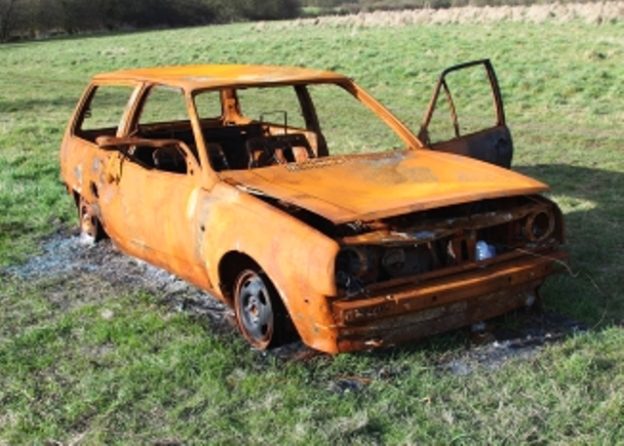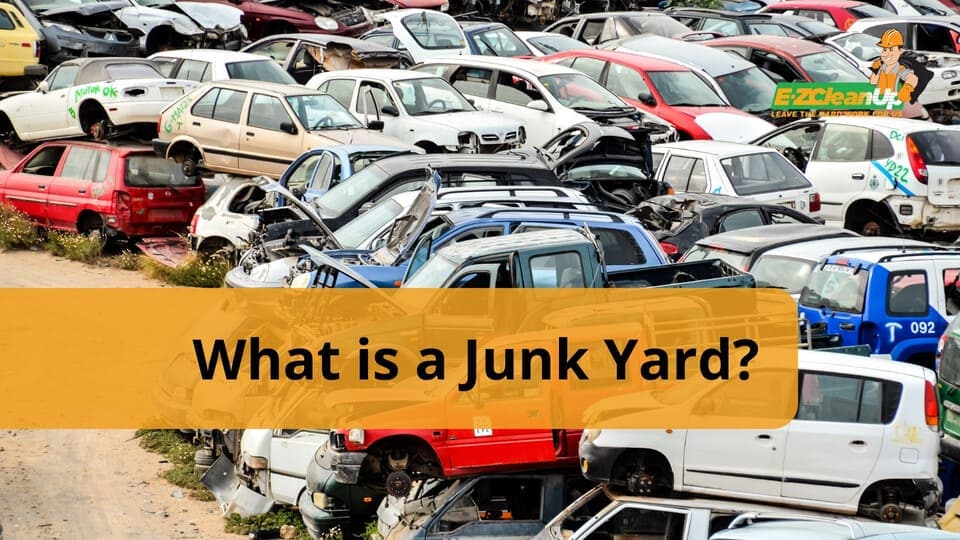The Financial and Environmental Benefits of Recycling Junk Vehicles
Reusing junk cars and trucks presents many financial and environmental advantages that expand well beyond waste decrease. By redeeming up to 90% of lorry parts, this method considerably decreases landfill problem while preserving necessary natural sources. It reduces down on energy usage and greenhouse gas exhausts linked to raw product extraction and production. The process also produces employment possibility across various markets, from taking apart to logistics, and supplies customers with cost-effective car components. These benefits highlight the complex worth of reusing junk autos, yet there are further aspects to think about when examining its complete impact.
Lowering Landfill Waste
Decreasing garbage dump waste via the recycling of scrap cars plays a critical duty in ecological preservation. Reliable recycling processes can considerably lower the quantity of waste that ends up in landfills when autos get to the end of their life cycle. Junk vehicles, otherwise effectively recycled, add to the expanding problem of land fill overcapacity, worsening environmental destruction and potentially infecting soil and groundwater with hazardous compounds such as oil, gas, and heavy steels.

Furthermore, the recycling procedure alleviates the adverse results of auto waste on biodiversity. Landfills are well-known for interrupting regional ecosystems, and decreasing the influx of scrap cars helps protect natural habitats. Eventually, reusing scrap cars and trucks is a strategic approach that fosters sustainable waste administration, lining up with more comprehensive ecological goals.
Conserving Natural Resources
In enhancement to mitigating land fill overcapacity, reusing junk vehicles plays a considerable duty in preserving all-natural sources. By reusing scrap cars, we significantly reduce the need for raw products, consequently curbing the environmental degradation linked with mining tasks.
Additionally, the process of recycling cars and truck elements such as aluminum, lead, and copper is far less energy-intensive than generating these products from virgin sources. This energy financial savings converts directly right into decreased fossil fuel usage and lower carbon footprints (we buy junk cars Denver). Furthermore, by redeeming and repurposing materials, we expand the lifecycle of non-renewable resources, guaranteeing they continue to be offered for future usage
Moreover, recycling auto fluids like oil, transmission, and antifreeze fluid protects against hazardous substances from polluting dirt and water resources. Via methodical recycling efforts, these fluids can be cleansed and reused, advertising a round economic situation and more diminishing the stress on natural deposits. Therefore, reusing scrap autos offers a diverse technique to preserving our earth's vital natural assets.
Developing Work Opportunities
The recycling of junk cars not only profits the environment yet additionally promotes financial development by producing job possibilities. This blossoming industry supplies a large range of employment leads, ranging from the preliminary collection and transportation of old lorries to the complex processes of taking apart, sorting, and repurposing the numerous elements.

The expansion of reusing plants additionally magnifies the task market, requiring functions such as engineers, machine operators, and quality assurance specialists to guarantee and manage the sophisticated equipment conformity with environmental policies. Even management review placements, such as sales, advertising, and client service, see a rise as the sector broadens.
Lowering Production Prices
By integrating recycled materials from junk autos, makers can dramatically reduce production prices. The use of recycled steel, aluminum, and other useful metals reduces the demand for basic material removal, which is both expensive and energy-intensive. This not just saves natural resources yet also converts right into significant expense savings for automobile suppliers. The energy required to refine recycled materials is significantly much less than that needed to create brand-new materials from square one. This reduction in power consumption straight associates with reduced production expenses.
Additionally, the recycling process assists streamline the supply chain by offering a constant increase of materials that are easily offered and frequently more affordable than freshly mined resources. These expense effectiveness are specifically essential in an extremely affordable sector like auto manufacturing, where margins can be razor-thin. Additionally, the recycling of junk cars and trucks aids minimize the volatile pricing of resources, allowing makers to far better projection and control their production budgets.
Offering Inexpensive Car Parts
When junk cars and trucks are reused, the accessibility of cost effective car components dramatically raises, profiting both customers and service center. Recycled car parts are typically cost a fraction of the cost of repairs, supplying a cost-efficient choice for automobile owners and mechanics. This affordability can be critical for people who may not have the financial methods to buy brand-new components, allowing them to preserve their cars in functional and risk-free condition.
Repair stores likewise acquire from this increased schedule of inexpensive components. By sourcing recycled components, these businesses can decrease their functional costs, which can be passed on to customers with reduced service fee. This, subsequently, can cause higher consumer contentment and commitment, as clients value the cost financial savings without compromising on top quality.
Additionally, the quality of recycled components has enhanced considerably for many years, thanks to innovations in recycling procedures and quality assurance actions. Numerous recycled components undergo extensive screening to ensure they fulfill industry requirements, offering dependability equivalent to new components - junk car buyers. By giving a high-grade and economically practical choice, the recycling of junk autos plays a critical function in sustaining both the automotive repair service sector and you can try here the broader consumer market
Final Thought
Reusing scrap cars presents considerable financial and ecological advantages by significantly decreasing garbage dump waste and saving all-natural resources. This practice lowers manufacturing costs by recovering as much as 90% of car parts, hence lowering power intake and greenhouse gas exhausts. In addition, it creates work possibilities throughout numerous markets and products inexpensive auto components, bolstering the automotive repair Continue industry. Overall, the recycling of scrap autos sustains both financial growth and sustainability objectives.
Reusing scrap vehicles provides countless economic and environmental advantages that expand well past waste reduction. Junk automobiles, if not correctly recycled, add to the expanding trouble of landfill overcapacity, intensifying environmental deterioration and possibly polluting dirt and groundwater with unsafe materials such as oil, gas, and hefty steels.
By reusing scrap autos, we significantly reduce the demand for raw materials, thereby curbing the ecological destruction associated with mining tasks.When scrap autos are reused, the schedule of economical automobile parts substantially boosts, profiting both consumers and repair service shops.Recycling junk automobiles provides considerable economic and environmental benefits by substantially reducing landfill waste and conserving natural resources.